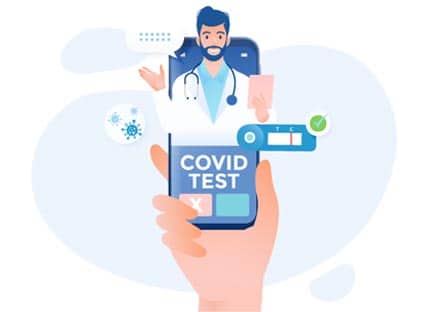Every year, on February, Rare Disease Day is celebrated to raise awareness in society about these rare diseases, understand their challenges, and show support for those living with them.
Rare diseases, also known as orphan diseases, are those that affect a small number of people compared to the general population. In the United States, a disease is considered rare when it affects fewer than 200,000 people.
Despite their low prevalence, it is estimated that there are between 6,000 and 7,000 different rare diseases, which means that millions of people worldwide live with one of these conditions. Some of these diseases are hereditary; others may be the result of environmental or unknown factors, making their understanding and treatment even more difficult.
It is estimated that between 25 and 30 million people in the United States live with a rare disease. Despite their low individual prevalence, the collective impact of these diseases is significant. Rare diseases represent a substantial burden for patients, their families, and the overall healthcare system.
How to detect rare diseases?
Detecting a rare disease can be complicated due to its low presence in the population. Symptoms can vary widely from one disease to another, making diagnosis difficult. It is essential for healthcare professionals to be familiar with these diseases and consider the possibility of a rare disease when faced with unusual or unexplained symptoms in their patients.
Some guidelines for detecting rare diseases include:
Paying attention to unusual or persistent symptoms
If you experience unexplained symptoms that do not respond to conventional treatment or persist for an extended period, it is important to seek medical attention and explore the possibility of a rare disease.
Medical and Family History
Informing your doctor about any medical or family history of rare diseases can help in the process of diagnosis and early detection.
Consultations with Specialists
In many cases, it may be necessary to consult medical specialists, such as geneticists or neurologists, to diagnose rare diseases and develop an appropriate treatment plan.
Genetic Testing
In the case of rare genetic diseases, genetic testing can be useful to identify genetic mutations and confirm the diagnosis.
It is essential to remember that early and accurate diagnosis is essential to ensure proper treatment and improve the quality of life for those living with rare diseases.
Symptoms of Rare Diseases
The symptoms of rare diseases can vary widely depending on the specific condition. Some rare diseases affect specific organs of the body, such as the lungs, heart, or liver, while others may have more generalized manifestations, such as chronic fatigue, pain, or physical disability.
It is important to note that many patients with rare diseases experience significant delays in diagnosis due to lack of knowledge and awareness about these conditions. Unusual or unexplained symptoms should be thoroughly evaluated by healthcare professionals with experience in rare diseases to ensure an accurate and timely diagnosis.
You may also be interested in: Start the Year with Good Health: Why You Should Consider a Comprehensive Physical Exam
Treatment Options
The treatment of rare diseases is often complex and may require a multidisciplinary approach involving various healthcare professionals. Some treatment options may include:
Specific Medications: In some cases, medications may be prescribed to treat specific symptoms or slow the progression of the disease.
Physical and Occupational Therapies: These therapies can help improve the quality of life and daily functionality of those living with rare diseases.
Surgery: In certain cases, surgery may be necessary to correct physical abnormalities or treat disease complications.
Psychological and Emotional Support: Emotional and psychological support is essential for those living with rare diseases and their families. Access to mental health services and support groups can be invaluable in the process of management and adaptation.
Research and Clinical Trials: Ongoing research and participation in clinical trials are essential to advance the understanding and treatment of rare diseases.
Through knowledge, compassion, and research, we can work together to improve the quality of life for those facing unique challenges due to rare diseases. It is crucial to continue promoting awareness and action at all levels of society so that no one feels alone on their journey to well-being.
Rare or orphan diseases can have a significant impact not only on physical health but also in all aspects of life. For this reason, it is essential to pay attention to warning signs presented by the body, as timely detection can be crucial in the treatment of any condition.
If you experience persistent abnormal signs over time, at Formé Medical Center we have a team of specialized professionals who will help you identify what is affecting your health and guide you towards the best treatment option. Do not hesitate to call us at 9147234900 or schedule your appointment.







